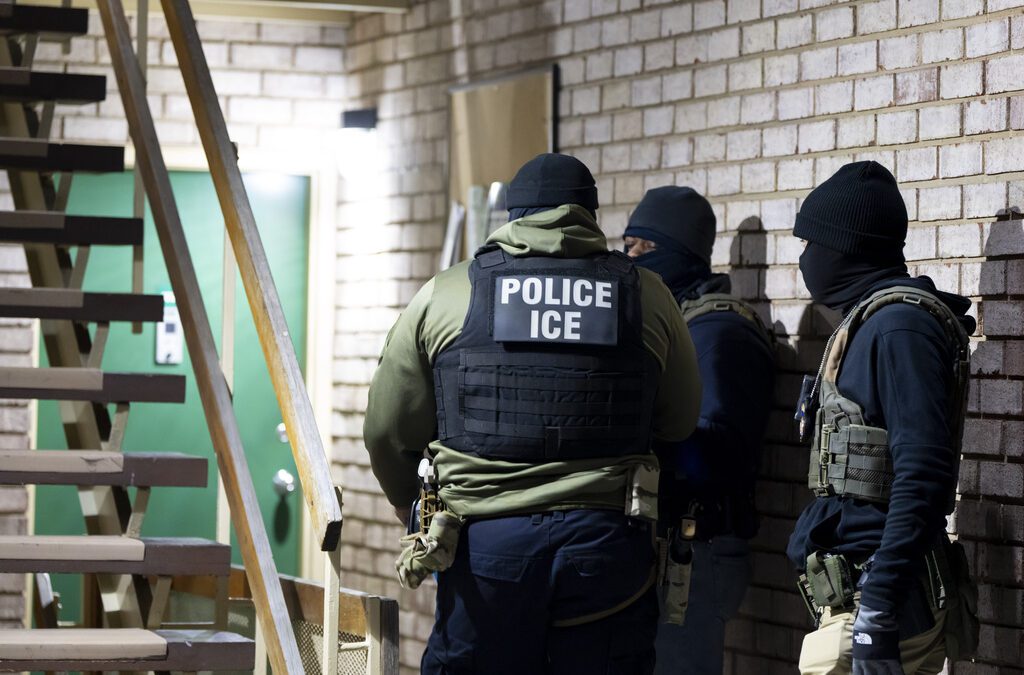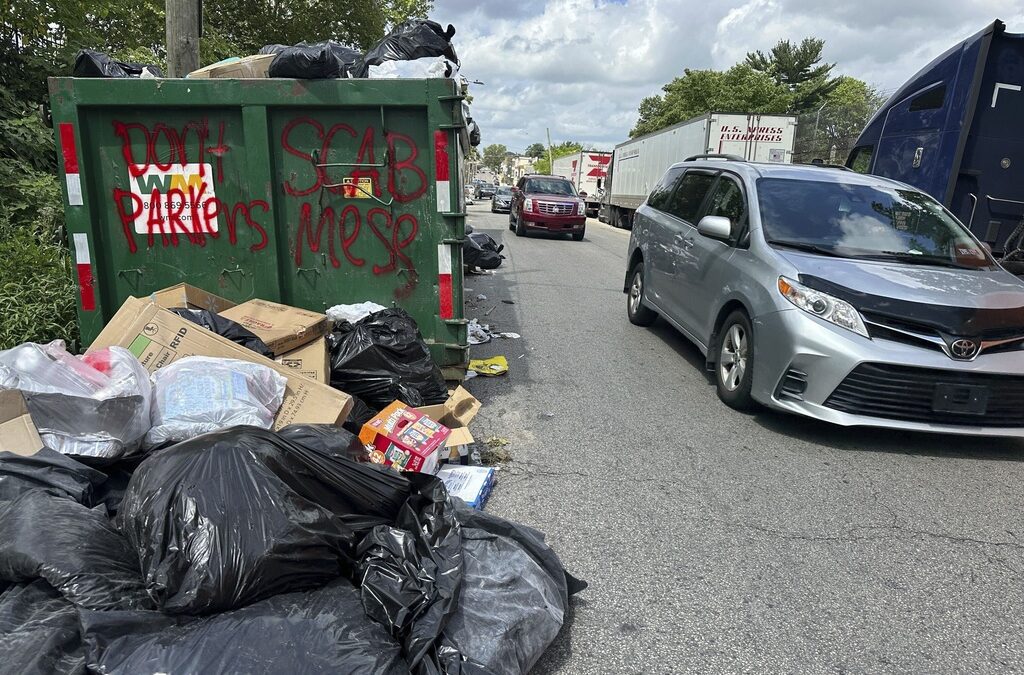
The Pennsylvania State Capitol is located in Harrisburg. (Kalena Thomhave)
Democratic Gov. Josh Shapiro signed legislation to classify deepfakes in Pennsylvania as digital forgeries, making non-consensual digital impersonation punishable by law.
Deepfakes are images or videos generated by artificial intelligence, typically for malicious use or to spread misinformation. Now, anyone engaging in digital impersonation will be subject to a misdemeanor of the first degree, while anyone doing so with fraudulent intent will be subject to a felony of the third degree.
“This law gives law enforcement the tools they need to fight this digital deception, yet does so in a responsible manner, protecting First Amendment rights and preserving valid expressions of parody, satire and other forms of free speech,” bill sponsor Sen. Tracy Pennycuick (R-Montgomery) said, after the governor signed it into law last Tuesday.
The bill passed unanimously in the Senate and with near-unanimous support in the House. Pennycuick has previously pushed through legislation to combat digital impersonation, including a law Shapiro signed last October to ban deepfake pornography.
Pennycuick’s pornography deepfake ban led Republican state Attorney General Dave Sunday to file the first charges involving artificial intelligence in a sexual abuse case in April.
Sunday commended the new legislation and Pennycuick for “recognizing the danger that artificial intelligence poses to Pennsylvanians. Having this law on the books adds another tool to our chest as we continue to proactively investigate and hold offenders accountable,” he said.
Deepfakes pose a widespread public threat, according to Pennycuick, because they include false images impossible to distinguish from real content, which are often “used to commit financial scams, injure personal reputations and disrupt the political process,” she wrote in a statement.
“The potential for widespread harm will only grow as artificial intelligence tools become more sophisticated and more readily accessible,” Pennycuick wrote in a memo introducing the bill in February.
In a recent, high-profile case, a deep-fake impersonating former-President Joe Biden’s voice called New Hampshire voters to tell them not to vote in the 2024 presidential primary.
Digital scams, including artificial intelligence ones, often target vulnerable populations, such as teenagers and the elderly, as well as small businesses.
Seeing a steady increase in payment app scams targeting senior citizens, then-U.S. Sen. Bob Casey (D-Pa.) advocated for the Consumer Financial Protection Bureau to increase its user protections in 2022.
Lawmakers around the country have responded to these challenges by introducing over 38 pieces of legislation in 18 states related to deepfake regulation. That’s according to the Transparency Coalition, a nonprofit advocate for AI regulation. This legislative push follows the 80 laws passed across the country to combat deepfakes in 2024, as well as 15 passed in 2023.
Although statewide regulations have received bipartisan support from federal lawmakers, they have also received some pushback, including from some Republicans in Congress, who criticize regulations for censorship and diminishing the country’s competitive edge in artificial intelligence.
Republican U.S. House members originally included a decade-long moratorium on state laws regulating AI in this year’s federal budget before it was eventually removed from the final bill.
Pennsylvania’s upper chamber is considering another bill on digital forgery regulation, which would ban the use of deepfakes in political campaigns, in an effort to improve election security.
Deepfake regulation has previously faced pushback in the state legislature on the basis of free speech concerns, including a 2021 bill to ban deepakes from political advertisements.

ICE officers detaining Lehigh County residents sparks fear
ICE officers are detaining and arresting immigrants at the Lehigh County Courthouse, angering local residents. Update: This story has been updated...

Philadelphia workers and city reach a deal to end strike that halted residential trash pickup
A union representing thousands of city workers in Philadelphia and the city have reached a deal to end a more than weeklong strike that halted...

Gov. Shapiro says Pennsylvania “got screwed” in the reconciliation bill signed into law.
Gov. Josh Shapiro is criticizing Pennsylvania Republicans who voted in favor of the reconciliation bill signed into law late last week by President...

Our favorite Pennsylvania stories of the year (so far)
From the Erie SeaWolves’ HBO moment to the 'box demon,' we’re taking a look back at the stories that have made us smile during the first half of the...

How Steelton-Highspire’s clean energy push saved enough to fund a teacher — and then some
A struggling steel town has been transformed into a model for clean energy and community resilience, thanks to the Steelton-Highspire school...




